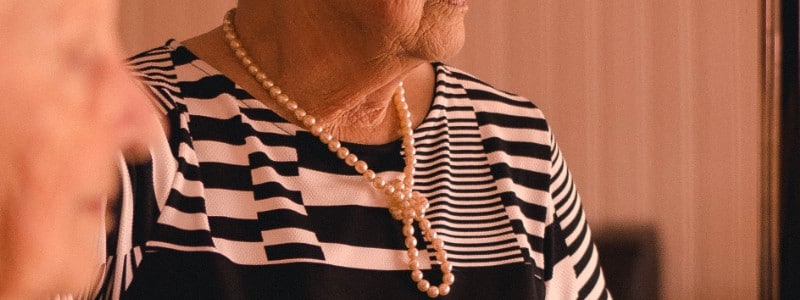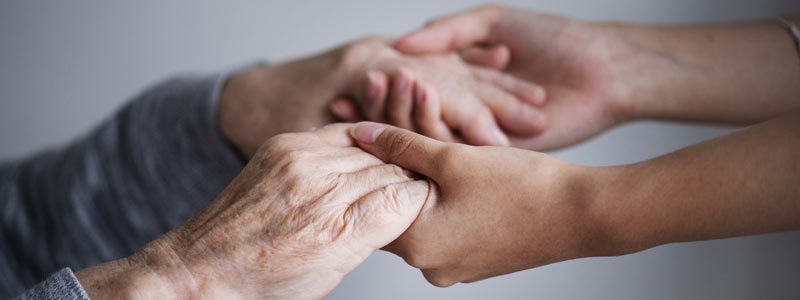What is Indiana’s Adult Wrongful Death Act?
When a nursing home resident passes away due to abuse or neglect, their surviving family has the right to seek justice. In Indiana, you can file a wrongful death suit against the nursing home if their negligence caused your loved one’s death. Seeking justice can be an uphill battle. Firstly, plaintiffs must prove that negligence […]

June 18, 2020

When a nursing home resident passes away due to abuse or neglect, their surviving family has the right to seek justice. In Indiana, you can file a wrongful death suit against the nursing home if their negligence caused your loved one’s death.
Seeking justice can be an uphill battle. Firstly, plaintiffs must prove that negligence caused their loved one’s death, and not the effects of old age. Secondly, Indiana’s Adult Wrongful Death Act may limit who can file a lawsuit against the nursing home, as well as how much you can recover in damages.
Proving Unnatural Death

A wrongful death lawsuit assumes that the decedent died from the negligence of another party. That means plaintiffs must be able to prove that the nursing home was responsible for their loved one’s death.
For elderly victims who were already suffering from health limitations, it can be hard to prove that they died because of negligence, and not from old age – especially if the nursing home tries to obfuscate evidence.
Nursing home patients are extremely vulnerable to neglect and abuse. Elder abuse often goes unreported and victims are three times more likely to be hospitalized or die. Common injuries caused by abuse or neglect are usually preventable if the nursing home was providing their patients with the care they actually needed:
- Excessive falls: long-term care facilities should have handrails, harnesses, and nurses who carefully monitor known fall-risks. Because of these measures, almost all falls should be preventable.
- Infections: elderly patients are particularly susceptible to infections, but they can also be caused by the nursing home’s failure to provide proper hygiene or catheter care, and general neglect of their duties to residents.
- Dehydration and malnutrition: if a patient is getting the attention and care they need, then there is no excuse for not feeding them or giving them water besides willful neglect.
Nursing homes don’t always notify families in a timely member when their loved ones are injured. The delay could be for a number of valid reasons, or it could be a sign of mismanagement or negligence. Before placing your loved one in a specific nursing home, it may benefit you to check annual surveys and complaints made by past and current residents on the Department of Health’s website.
Gathering Evidence
The best way to prove the abuse is to compare the patient’s account of what happened with the nursing home’s records. If your loved one died because of suspected negligence, then you must rely on conversations they had with you about what was happening to start the investigation
An abusive nursing home will likely try to hide their wrongdoing. Time is of the essence when pursing a malpractice or wrongful death case. It may be difficult to get answers from nurses or management about what happened. But a nursing home abuse attorney can help you get the answers you need in a timely manner.
Nursing home abuse lawyers can access information needed to prove what really happened to your loved one. This includes medical charts, surveillance footage, emails between nursing staff, and records of past violations that the facility would rather keep hidden.
The Adult Wrongful Death Act

A wrongful death lawsuit assumes three things:
- The victim, or the decedent, died due to the wrongful act or omission of another.
- The decedent left loved ones behind.
- The decedent’s loved ones suffered emotional and monetary losses due to the decedent’s passing.
In Indiana, the amount of recoverable damages from a wrongful death lawsuit depends on decedent’s age and surviving family. The Adult Wrongful Death Act (AWDA) covers unmarried adult decedents without dependents.
Many nursing home abuse victims are widows or widowers with adult children and qualify under the AWDA. The AWDA has a damages cap, and also limits which family members can recover damages.
Types of Damages under the AWDA
There are two types of damages covered by the AWDA. First are expenses caused by the death. This includes medical, hospital, and funeral costs, as well as attorney fees. Attorney fees are discretionary and could be waived by the judge.
The second category is loss of love and companionship. These damages represent the hurt family members experience from the loss of the decedent’s friendship, love, and guidance. Note that lost of love and companionship is not the same as pain and suffering. Pain and suffering are not recoupable under the AWDA.
Loss of Love and Companionship

Unlike funeral costs and hospital bills, noneconomic damages like loss of companionship could theoretically be quantified into any conceivable amount. As such, the AWDA limits damages for loss of love and companionship in two ways.
Firstly, loss of love and companionship is only available to the parent(s) or non-dependent child of the decedent. Even if the decedent had a closer relationship with their siblings or cousins than with their children, only non-dependent children and parents can claim loss of companionship.
Secondly, there is a damages cap. Adult wrongful death lawsuits have a damages cap on how much the plaintiff can recover from the defendant. For wrongful death lawsuits, damages for loss of love and companionship are capped at $300,000. The $300,000 cap is the same no matter how many adult children exist. It isn’t always divided evenly between plaintiffs.
Many families are surprised by both the cap and the limited beneficiaries. It is hard enough to quantify the loss of a beloved parent, much less be told that your pain is only valued up to a certain amount.
You and your malpractice attorney may agree that loss of companionship exceeds the $300,000 cap. If so, you can apply to the Patient’s Compensation Fund for additional damages. But even damages from the Patient’s Compensation Fund are capped, and recouping damages from the fund isn’t guaranteed in an adult wrongful death case.
Adult Wrongful Death or Medical Malpractice?

Indiana’s wrongful death statutes cover victims of negligence, but so does Indiana’s Medical Malpractice Act. More specifically, the Medical Malpractice Act applies to negligence by qualified healthcare professionals.
The Medical Malpractice Act allows recovery of damages including pain and suffering, and has a damages cap, but it does permit recouping of damages exceeding the cap from the Patient’s Compensation Fund. If the nursing home is a qualified healthcare provider, then you would have to pursue damages by the Medical Malpractice Act rather than the AWDA.
An Indiana nursing home abuse attorney will know which act applies to your specific case. If you decide to file a lawsuit, they can walk you through the process from beginning to end, including filing for additional damages should they exceed the cap.
Help from a Malpractice Attorney
Indiana’s Adult Wrongful Death Act may make it difficult for plaintiffs to feel like they have a fair shot at holding abusive nursing homes accountable. Not only are damages capped and certain family members excluded from filing suit, but they also have the burden of proving it was an unnatural death when the nursing home is likely doing all it can to obstruct the truth.
This is where an Indiana nursing home abuse attorney can help. They know how to deal with negligent nursing homes. They will also explain how the AWDA could affect your pursuit of justice.
If a loved one has passed away in their nursing home due to abuse or neglect, Hensley Legal Group can help. Call, text, or chat with us online for a free conversation about your case.